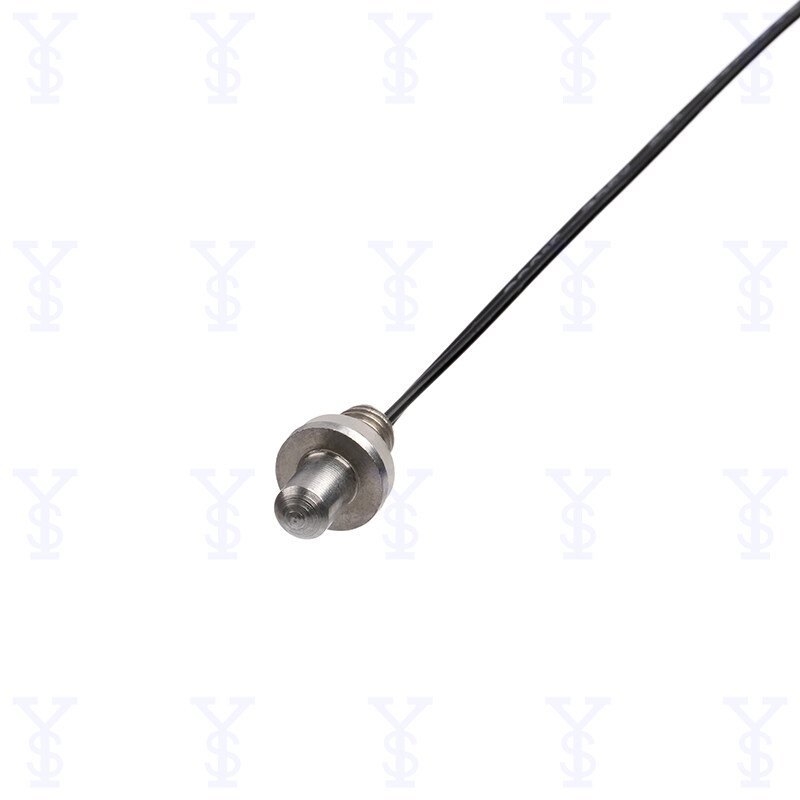Электрондук почта форматында ката
emailCannotEmpty
emailDoesExist
pwdLetterLimtTip
inconsistentPwd
pwdLetterLimtTip
inconsistentPwd


Enhancing Your Brewing Experience: Exploring Coffee Machine Temperature Sensors
In the world of coffee brewing, precision is paramount. From the grind size to the water-to-coffee ratio, every detail contributes to the quality of the final cup. Among these factors, temperature plays a crucial role in extracting the full flavor and aroma from the coffee grounds. In this comprehensive guide, we will delve into the significance of temperature sensors in coffee machines, exploring their function, importance, and impact on the brewing process.
The Importance of Temperature Control in Coffee Brewing
Achieving the perfect brewing temperature is essential for unlocking the full potential of your coffee beans. Temperature affects the rate of extraction, with lower temperatures resulting in under-extracted, sour-tasting coffee, and higher temperatures yielding over-extracted, bitter flavors. To achieve optimal extraction, coffee machines must maintain a precise brewing temperature throughout the brewing process.
The Role of Temperature Sensors in Coffee Machines
Temperature sensors, also known as thermistors or temperature probes, are the unsung heroes of coffee brewing. These small, yet crucial components monitor the temperature of the water as it passes through the brewing system, ensuring that it remains within the optimal range for extraction. By providing real-time feedback to the coffee machine's control system, temperature sensors enable precise temperature regulation, resulting in consistently delicious coffee with every brew.
Types of Temperature Sensors Used in Coffee Machines
There are several types of temperature sensors commonly used in coffee machines, each with its own unique characteristics and advantages:
1. Thermocouples: Thermocouples are popular temperature sensors known for their durability and wide temperature range. They consist of two dissimilar metals that produce a voltage proportional to the temperature difference between them. While thermocouples offer fast response times, they may require calibration to maintain accuracy.
2. Resistance Temperature Detectors (RTDs): RTDs are highly accurate temperature sensors made from materials such as platinum or nickel. They operate on the principle that electrical resistance changes predictably with temperature. RTDs offer excellent stability and accuracy, making them ideal for precise temperature control in coffee machines.
3. Thermistors: Thermistors are semiconductor devices with resistance that varies significantly with temperature. They are cost-effective and offer high sensitivity, making them suitable for temperature measurement in coffee machines. However, thermistors may require linearization to achieve accurate readings over a wide temperature range.
How Coffee Machine Temperature Sensors Work
Coffee machine temperature sensors are typically located at key points in the brewing system, such as the boiler, brew group, or water outlet. As water flows through the system, the temperature sensor continuously measures the temperature and sends the data to the machine's control unit. Based on this information, the control unit adjusts the heating elements or water flow rate to maintain the desired brewing temperature, ensuring optimal extraction and flavor development.
Benefits of Using Temperature Sensors in Coffee Machines
The incorporation of temperature sensors in coffee machines offers several benefits for both home brewers and coffee enthusiasts alike:
1. Consistent Brewing Results: Temperature sensors ensure that each brew is prepared at the ideal temperature, resulting in consistent flavor profiles and quality across multiple batches.
2. Enhanced Flavor Extraction: By maintaining precise temperature control, coffee machines equipped with temperature sensors can extract the full range of flavors and aromas from the coffee grounds, resulting in a more satisfying cup of coffee.
3. Extended Equipment Lifespan: Temperature sensors help prevent overheating and temperature fluctuations, which can prolong the lifespan of coffee machine components such as heating elements and pumps.
4. User-Friendly Operation: With temperature sensors handling the intricacies of temperature regulation, users can enjoy a hassle-free brewing experience without the need for manual adjustments or guesswork.
Challenges and Considerations in Coffee Machine Temperature Sensor Design
While temperature sensors play a critical role in coffee brewing, their design and implementation present certain challenges and considerations for manufacturers:
1. Accuracy and Calibration: Ensuring the accuracy of temperature sensors requires careful calibration and testing to account for variations in sensor response and environmental factors.
2. Reliability and Durability: Temperature sensors must withstand the harsh conditions present in coffee machines, including high temperatures, moisture, and mechanical stress, without compromising performance or reliability.
3. Integration and Compatibility: Coffee machine manufacturers must design temperature sensors that seamlessly integrate with their brewing systems and are compatible with existing control algorithms and software.
Future Trends in Coffee Machine Temperature Sensor Technology
As technology continues to evolve, we can expect to see several advancements in coffee machine temperature sensor technology, including:
1. Wireless Connectivity: Integration of wireless temperature sensors that communicate directly with mobile devices, allowing users to monitor and control brewing parameters remotely.
2. Smart Sensor Algorithms: Development of intelligent sensor algorithms that analyze temperature data in real-time and automatically adjust brewing parameters for optimal flavor extraction.
3. Miniaturization and Integration: Miniaturization of temperature sensors to enable their integration into compact coffee machine designs without sacrificing accuracy or performance.
Conclusion: Elevating Your Coffee Experience with Temperature Sensor Technology
In the world of coffee brewing, precision is paramount, and temperature plays a pivotal role in determining the quality and flavor of the final cup. The coffee machine temperature sensors serve as the guardians of flavor, ensuring that each brew is prepared at the optimal temperature for maximum extraction and enjoyment. By understanding the function, importance, and impact of temperature sensors in coffee machines, you can elevate your coffee experience to new heights and savor every sip of your favorite brew.

